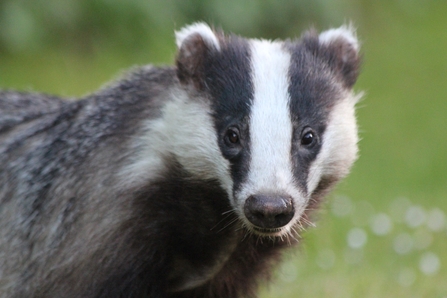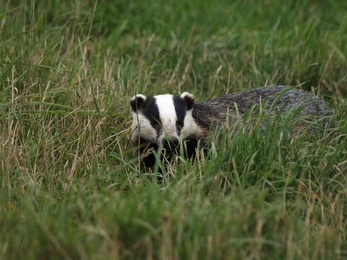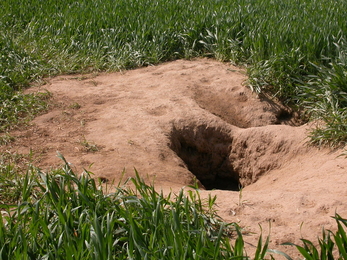Winter in Shropshire varies from year to year. Sometimes we get month-long deep freezes, then other winters are just wet and drizzly and rarely drop below freezing. Compared to Scandinavian countries and the lands around the Arctic circle, our winters are generally quite tame! Because of the unpredictable nature of the Great British winter months, it pays for wildlife to be adaptable to changing conditions. Hedgehogs, dormice and all native UK bats hibernate, usually from October to April depending on weather conditions. Other animals tend to slow down their activities when it's cold, damp or snowy.
Badgers slow down so much that they can happily go into a deep sleep for days or even weeks during times of harsh weather. This sleep is called torpor and while it isn't quite as deep a sleep as hibernation, it is enough that it would take a particularly loud noise to wake them up! Badgers build up reserves of fat during the autumn when there is plenty of food to eat. Fallen fruit, nuts and berries combined with insects, worms and carrion all provide a badger with enough body fats to go to sleep for weeks at a time and not need to worry about waking up to eat. These periods of time are known as winter lethargy. As they rest, their body continues to function by using the energy in those fat reserves.




